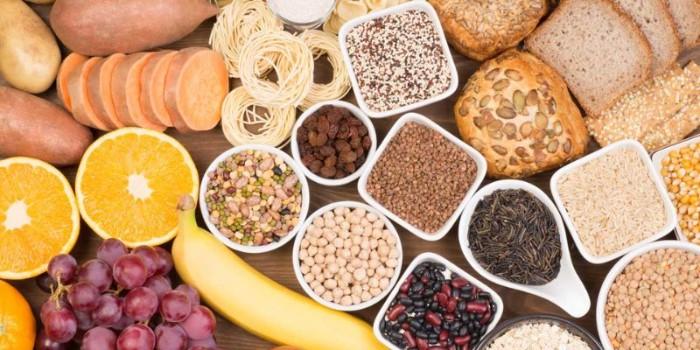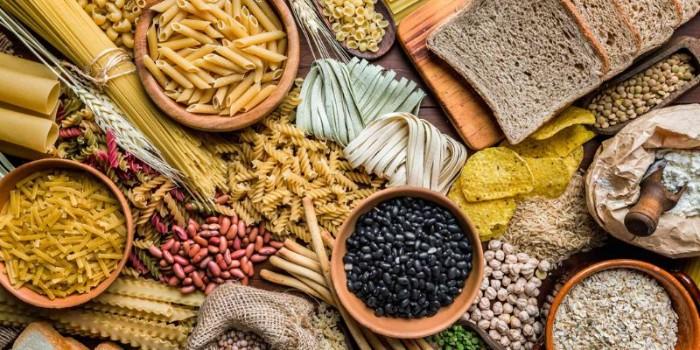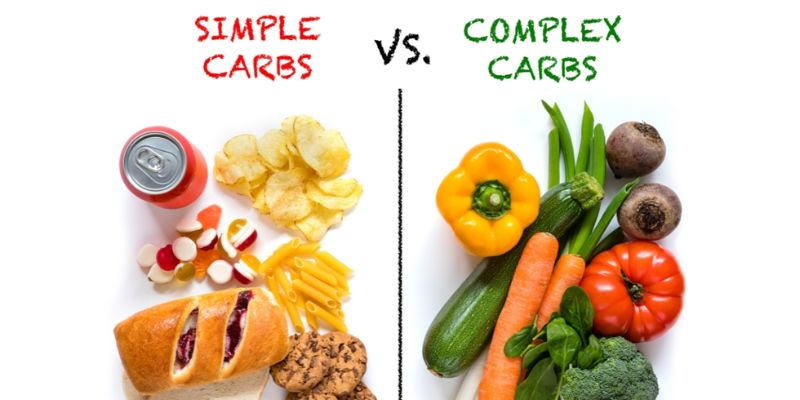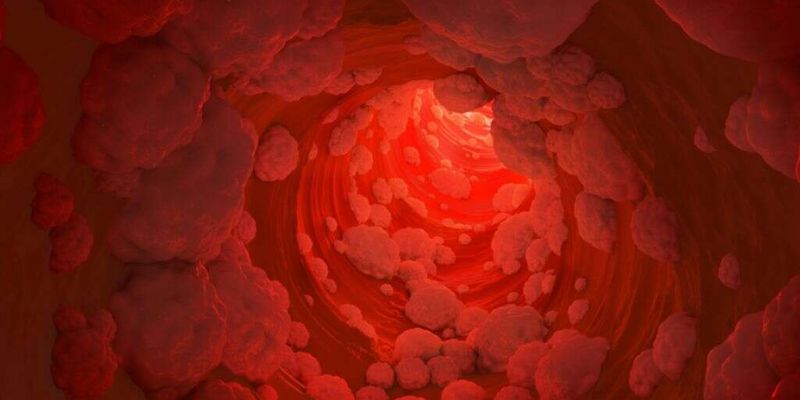Are you looking to make some lifestyle changes? Changing what we eat can often be difficult when it comes down to the specifics of our diets. But if you are among those wanting healthier options, understanding carbohydrates could be a great place to start!
We will look at how simple carbohydrates and complex carbohydrates differ from one another and why they should matter when making decisions about what foods you're eating.
With this knowledge, we'll provide tips for incorporating more complex carbohydrates in your diet on a day-to-day basis—a key part of any healthy routine.
What Is the Difference Between Simple and Complex Carbs
Simple carbohydrates are sugars naturally found in many foods, like fruits, vegetables, and dairy products. They are quickly digested and absorbed into the bloodstream, providing energy. Examples of simple carbs include glucose, fructose, and lactose.
Complex carbohydrates, on the other hand, come from plant sources such as grains, legumes, nuts, and seeds. These types of carbs take longer to digest, so they provide energy over a sustained period. Complex carbs include whole grains, starchy vegetables such as sweet potatoes and corn, legumes like beans and lentils, and nuts and seeds.
Simple carbohydrates are generally less healthy than complex carbohydrates because they can cause spikes in blood sugar levels. On the other hand, complex carbohydrates are broken down slowly and provide lasting energy to the body. For this reason, complex carbs are typically recommended as a part of a healthy diet.
In addition to providing energy, complex carbohydrates contain important vitamins, minerals, and fiber essential for optimal health. Eating foods that contain complex carbs can help regulate blood sugar levels and reduce the risk of developing chronic diseases such as diabetes.
What Are Simple Carbohydrates
Simple carbohydrates, monosaccharides, or simple sugars are molecules of one sugar unit. These include glucose, fructose, and galactose. Simple carbohydrates can be found in fruits, vegetables, dairy products, honey, and table sugar.
Simple carbohydrates can provide a quick energy source for the body because they can be broken down quickly, releasing a lot of energy. However, they can cause blood sugar levels to rise rapidly and drop suddenly. This can lead to feelings of tiredness and cravings for more sugary foods.
Simple Carb Foods to Avoid

While it’s OK to enjoy simple carbohydrates in moderation, some foods should be avoided or eaten sparingly due to their high sugar content and lack of nutritional benefits. Examples of simple carb foods to avoid include:
- White bread and other white flour products, including pasta, crackers, bagels, and muffins
- Sugary breakfast cereals and cereal bars
- Cakes, cookies, doughnuts, pastries, and other desserts
- Sugary drinks such as soda, energy drinks, and sweetened juices
What Are Complex Carbohydrates
Complex carbohydrates comprise three or more simple sugar molecules linked together in a chain. They are also referred to as polysaccharides. Complex carbohydrates cannot be digested by the body and provide no energy but can be broken down in the large intestine by bacteria into simpler sugars called monosaccharides that can then be absorbed.
Complex carbohydrates are found primarily in plant foods such as vegetables, fruits, legumes, and grains. Unlike simple carbohydrates, complex carbohydrates contain fiber that helps to slow down the rate at which glucose enters the bloodstream, resulting in a more sustained energy level.
Fiber also helps with regularity in bowel movements and has been found to help lower cholesterol levels. Additionally, fiber can help you feel fuller for longer, aiding in weight loss.
There are two types of complex carbohydrates: soluble and insoluble. Soluble fiber dissolves in water and helps slow digestion; it is found in oatmeal, nuts, beans, and apples. Insoluble fiber does not dissolve in water and helps to push material through the digestive system faster; it is found in wheat bran, vegetables, and whole grains.
Complex carbohydrates are a necessary part of a healthy diet as they provide the body with an important energy source. They also help to maintain blood sugar levels, reduce cholesterol levels, and promote regularity in bowel movements.
Eating complex carbohydrates can also help to control hunger and aid in weight loss. Complex carbohydrates should make up the majority of carbohydrates consumed and should be part of every meal.
Complex Carb Foods to Eat

Complex carbohydrates are better than simple carbohydrates because they provide sustained energy throughout the day. Examples of complex carbohydrate foods include:
- Whole grains, such as oats, brown rice, whole wheat bread, and quinoa
- Beans and legumes, like lentils, black beans, and chickpeas
- Starchy vegetables, such as sweet potatoes, yams, corn, and squash
- Fruits, including apples, oranges, and bananas.
Eating complex carbohydrates is also beneficial for health as they are rich in vitamins, minerals, dietary fiber, and antioxidants. Consuming a diet that includes complex carbohydrates can help to prevent chronic diseases such as obesity, diabetes, and heart disease.
Additionally, eating complex carbohydrates can promote weight loss, as they are digested more slowly than simple carbohydrates and can help keep you feeling full for longer periods.
Limit Refined Foods
Refined carbohydrates have stripped much of their fiber and micronutrients away, leaving only simple sugars. Eating too many refined foods can lead to blood sugar spikes and crashes, leaving you tired or lethargic. To reduce your consumption of refined carbohydrates, limit processed snacks like cookies, cakes, crackers, chips, and sugary drinks. Instead, swap these out for whole fruits, vegetables, and whole grains.
FAQs
Which are healthier, simple, or complex carbohydrates?
The short answer is that complex carbohydrates are generally healthier than simple carbohydrates. Complex carbs provide the boy with more nutrition and fiber, making them a better choice for sustained energy throughout the day. Additionally, because they are digested more slowly, they help regulate blood sugar levels and reduce cravings.
What are simple carbohydrates?
Simple carbohydrates are basic sugars that often break down quickly and provide short-term energy. They are naturally found in fruits, vegetables, and anole grains b unprocessed forms like table sugar or high-fructose corn syrup. Simple carbs should be avoided because they lack fiber and other important nutrients.
What are complex carbohydrates?
Complex carbohydrates are starches, or long chains of sugar molecules, that take longer for the body to digest and provide sustained energy over a longer period. Complex carbs are found in whole grains, legumes, starchy vegetables, nuts, seeds, and beans. These foods offer more nutrition than simple carbs and provide important vitamins and minerals like iron, zinc, and magnesium.
Conclusion
All in all, the simple vs. complex Carbohydrate debate can be good for individuals to know because it allows them to craft a meal plan based on their goals and health concerns. It also helps when choosing the carbohydrates best for specific situations like snack time or family dinners. Simple carbs are bad for weight loss and overall health due to their sugar content, whereas complex carbs provide essential vitamins, minerals, and fiber that promote healthy digestion and improved well-being.
While eating simple and complex carbohydrates isn’t recommended, it's clear which is better if one must make a choice. Limiting refined foods should also be considered when constructing a meal plan, as it further ensures health and overall wellness.




